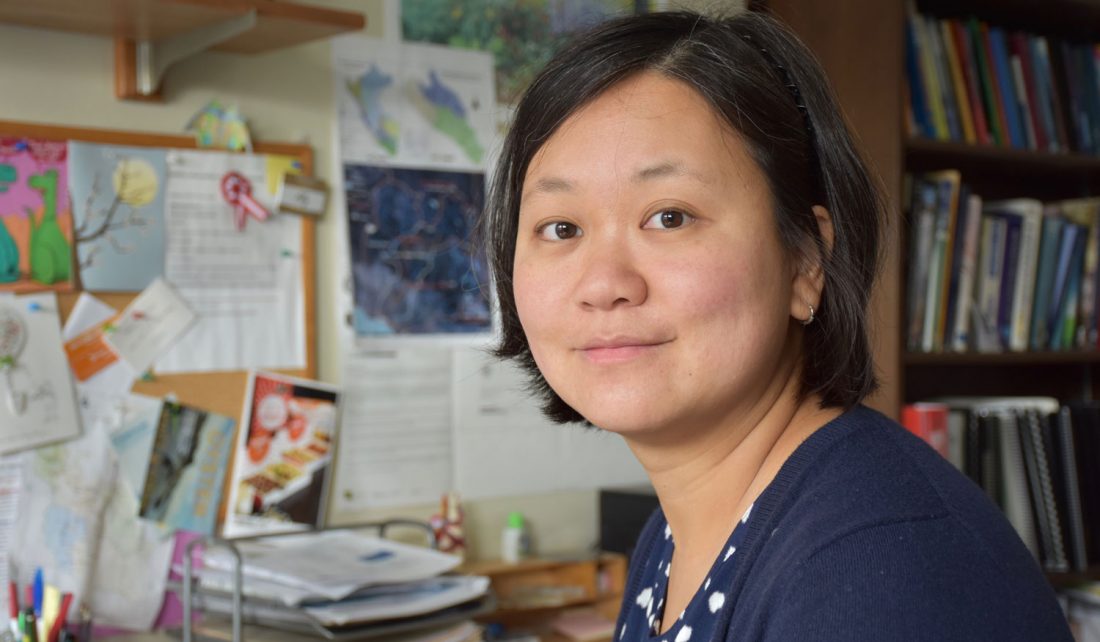
Despite good intentions, many of us don’t necessarily change our behaviors to help protect the health of local waters. What would make the difference? Illinois-Indiana Sea Grant researchers combined social science and biophysical data to understand the likelihood that residents of northwest Indiana would implement practices that can be beneficial to water quality.
Among other findings, the research team found that people are more likely to adopt a conservation practice if it is something their friends or neighbors are doing.
Zhao Ma and Sara McMillan, both of Purdue University, focused their study on two Indiana watersheds that flow into Lake Michigan—the East Branch–Little Calumet River watershed and the Trail Creek watershed—quantifying pollution inputs and interviewing and surveying residents.
The research team divided the population into five groups that covered a range of urban, rural and agricultural landowners to assess each group’s contribution to local water pollution and learn about their willingness to adopt practices that might make a difference.
For each group, the scientists assessed ongoing nitrogen, phosphorus and sediment inputs as well as conservation practices already in place. These practices, also known as best management practices, are effective and practical approaches to reduce pollution and protect water quality, such as rain barrels and rain gardens in urban areas, and cover crops and conservation tillage in agricultural settings.
Overall, researchers found that participants were aware of water quality issues. “But what we’ve learned is that urban residents think farmers are the problem and farmers think urban residents are the problem” said Ma, a social scientist. “People tend to blame others.”
The study found that all five groups do, in fact, contribute to water pollution. The researchers also conducted a survey experiment by randomly including this information in some surveys to assess its impact on responses. But, when participants learned they are responsible for water pollution, this did not necessarily impact their willingness to adopt practices to reduce water pollution. Unless they already wanted to take action, survey respondents generally were unmoved by learning their contribution to local water pollution.
Providing general information on possible best management practices for improving water quality was not a key component for changing behaviors either, but it may provide a motivation for water resource professionals to engage in one-on-one discussions and explanations with residents.
“We learned that survey respondents didn’t necessarily have the knowledge or capacity to figure out if a conservation practice would work for them—this was a major barrier to action,” said Ma. “Residents knew what’s possible generally, but they wanted someone to help them decide what practices fit with their specific property and way of life.”
On the other hand, social norms are an important component in people’s decision making. Social norms include both descriptive norms—what you can observe in plain sight, such as your neighbors using rain barrels—and more subjective norms, for instance, what you think people expect of you.
The research team confirmed previous studies, demonstrating that people are socially driven. Generally, if we realize neighbors, friends and trusted peers are taking action, this makes us more likely to do something, too. Social norms can be a much bigger motivator to adopt conservation practices than information alone, and sometimes works better than other types of incentives.
For those interested in motivating residents, Ma suggests thinking about ways to capitalize on social norms. “Consider organizing community events or programming that encourages people to talk to each other—they become more aware of what others are doing and what is expected of them from their community,” she said. “Community role models and opinion leaders can also play an important role. The social aspect should be part of the solution strategy to protect water quality.”
The researchers have one more piece to this project. They are running different modeling scenarios to understand the realistic potential of using conservation practices to reduce water pollution in the watersheds. With that information, they will be able to further identify groups of residents to target for increased education, assistance and incentives to promote adoption of conservation practices.
You can listen to a podcast interview of Zhao Ma discussing this research in the first “Teach Me About the Great Lakes” Researcher Feature.
Illinois-Indiana Sea Grant is a part of University of Illinois Extension and Purdue Extension.
Writer: Irene Miles, 217.333.8055, miles@illinois.edu

